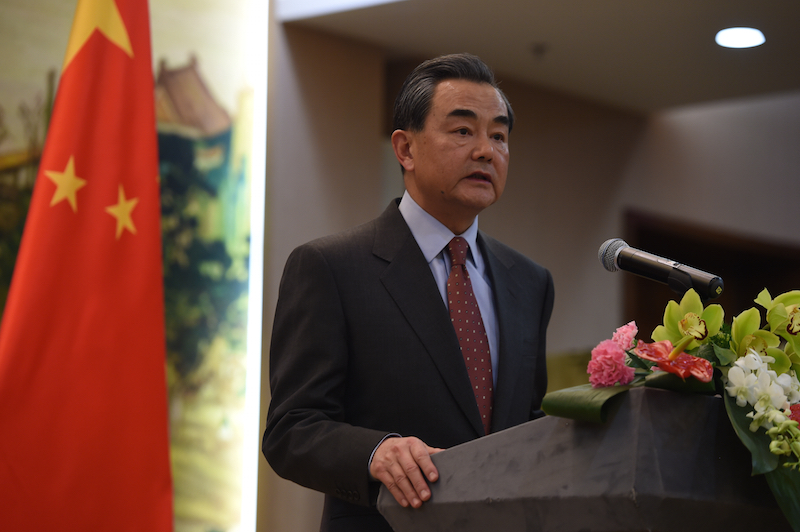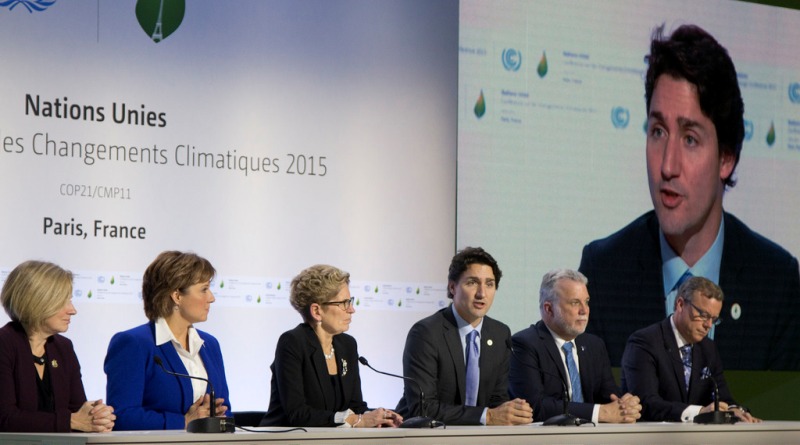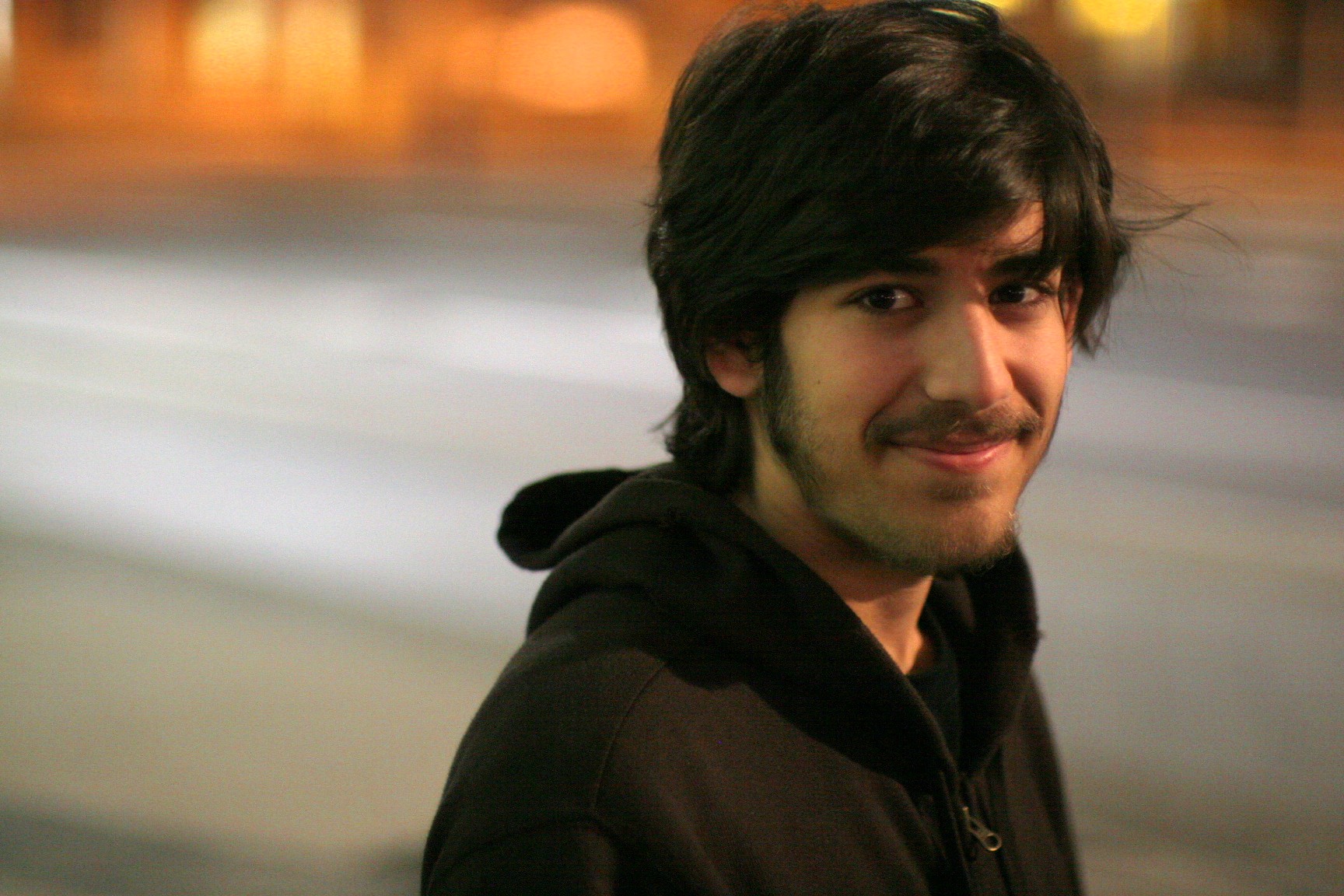At a joint press conference between Canada and China on Wednesday, June 1, 2016, a Canadian reporter asked Foreign Minister Stéphane Dion why Canada was pursuing stronger relations with China, given its poor human rights record. She was referring in particular to the disappearance last month of a Hong Kong bookseller, the arrest of Canadian Kevin Garrat on accusations of spying, and Chinese aggression in the South China Sea.
Her question was ill received by Chinese Foreign Minister Wang Yi, who angrily berated the reporter, saying the question was “full of prejudice against China and arrogance” and “totally unacceptable.” Yi defended China’s human rights record on the basis of its escape from total poverty and economic development, now being the second-largest economy in the world.
Seen as an attempt to silence foreign reporters, Yi’s heated response made headlines. The Canadian government denounced China’s treatment of journalists shortly thereafter, and Conservative MP Tony Clement accused Wang of disregarding press freedom as a “Canadian principle.” Former Canadian Ambassador David Mulroney suggested Yi could have been trying to gain support back home in being so defensive, as Chinese diplomats abroad who are not steadfastly loyal to China could be perceived as “soft.”
At the root of this tension, however, are competing notions of human rights. Given China’s history and current phase of development, a large portion of its population is focused more on economic security than traditional “rights” concerns, such as free speech. The Chinese government has defined human rights “differently” from organizations such as Human Rights Watch and Amnesty International, who’ve criticized China for its lack of free speech, movement, and religion. The Party’s position remains that human rights first find expression in the rights to survival and development.
Indeed, the Chinese regime itself prioritizes social and economic rights such as a minimum standard of living, along with access to food, housing, education, and healthcare. These “positive” rights go in contrast to the “negative rights” (i.e. non-interference) that make up the traditional constitutional orders of many Western democracies such as Canada’s. Yi’s comments about economic development and poverty reduction reflect this different imperative.
Regardless of Yi’s individual motives, it’s clear the Chinese government is operating under its own “human rights” brand. In forty years, the country has created an environment that’s undeniably had positive effects for its population of 1.3 billion people. The party focused on development, as infrastructure was built, education was expanded, poverty diminished, and standards of living improved.
But China is no stranger to external criticism. Human Rights Watch considers China an “authoritarian state, one that systematically curbs human rights, including freedom of expression, association, assembly, and religion.” Some of China’s most vocal critics point to the denial of basic democracy in Hong Kong and police brutality in Tibet as examples of its poor human rights record. The “Umbrella Revolution” in Hong Kong in 2014 sparked global outrage as peaceful democracy protestors suffered from police brutality, and the self-immolations of Tibetans have gone unremarked by the Chinese government.
Yet research indicates attitudes among mainlanders toward the Chinese government are quite different. A survey published on Political Research Quarterly found the average Beijing resident’s support for the government ranked 8.0 on a 10.0 point scale. Similar responses were found in the Sixth Wave World Values Survey. Granted, the location of the sample size makes a difference: Beijing is at the centre of the Chinese government, so residents there may view the government more favourably. However, in the World Values Survey conducted from 2012-2013, the average level of support among Chinese respondents at large was 7.5 out of 10.0. Economic performance was cited as one of the core reasons for this relative satisfaction.
This research suggests a lack of democracy has not necessarily led to political disaffection in the Chinese case. This is because an absence of free and fair elections does not result in a lack of political demand, and the Chinese Communist Party has made efforts to respond to grievances where possible. China’s economic development may, therefore, be a more prominent indicator in attitudes toward the regime.
As China continues the process of industrialization, much of its population may still prioritize “material” concerns, related to economic security and material wealth. In the future, there could be a shift toward what American sociologist Ronald Inglehart calls “post-material” values, which emphasize self-expression and quality of life over economic and physical needs.
It’s very possible a large percentage of the Chinese population has little energy to care about “post-material” concerns such as human rights as they are understood in Western democracies. Consider, for example, farmers in poor rural regions who are struggling to provide for their families. Their priorities will be different from those in urban areas with increasing material wealth, who are able to focus on other questions of social justice, such as free speech.
Despite Wang Yi’s undiplomatic response and disregard for the free press as a Canadian value, states who condemn the Chinese regime for its human rights record need to consider the different priorities at play. With more than 82 million people in China living below the poverty line and dependent on government support, concern for economic security may take precedence over human rights, that is, the “post-material.”
Photo: Chinese Foreign Minister Wang Yi at Ministry of Foreign Affairs in Beijing (2016), by U.S. Department of State via Flickr. Public Domain.
Disclaimer: Any views or opinions expressed in articles are solely those of the authors and do not necessarily represent the views of the NATO Association of Canada.




